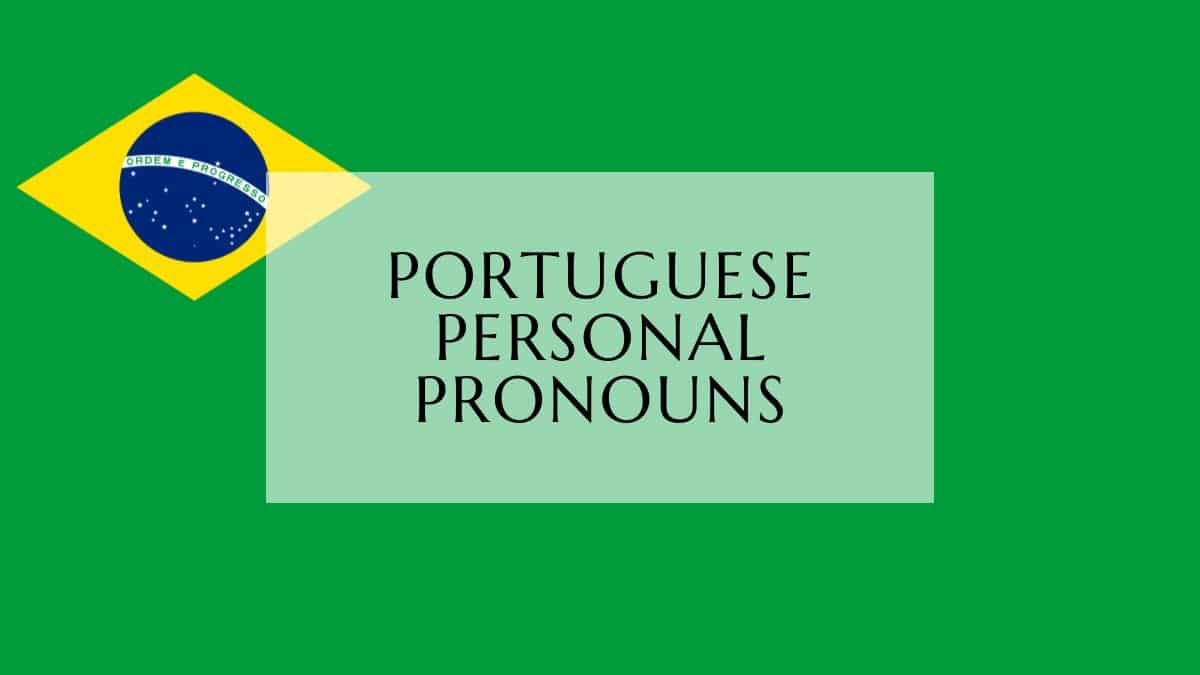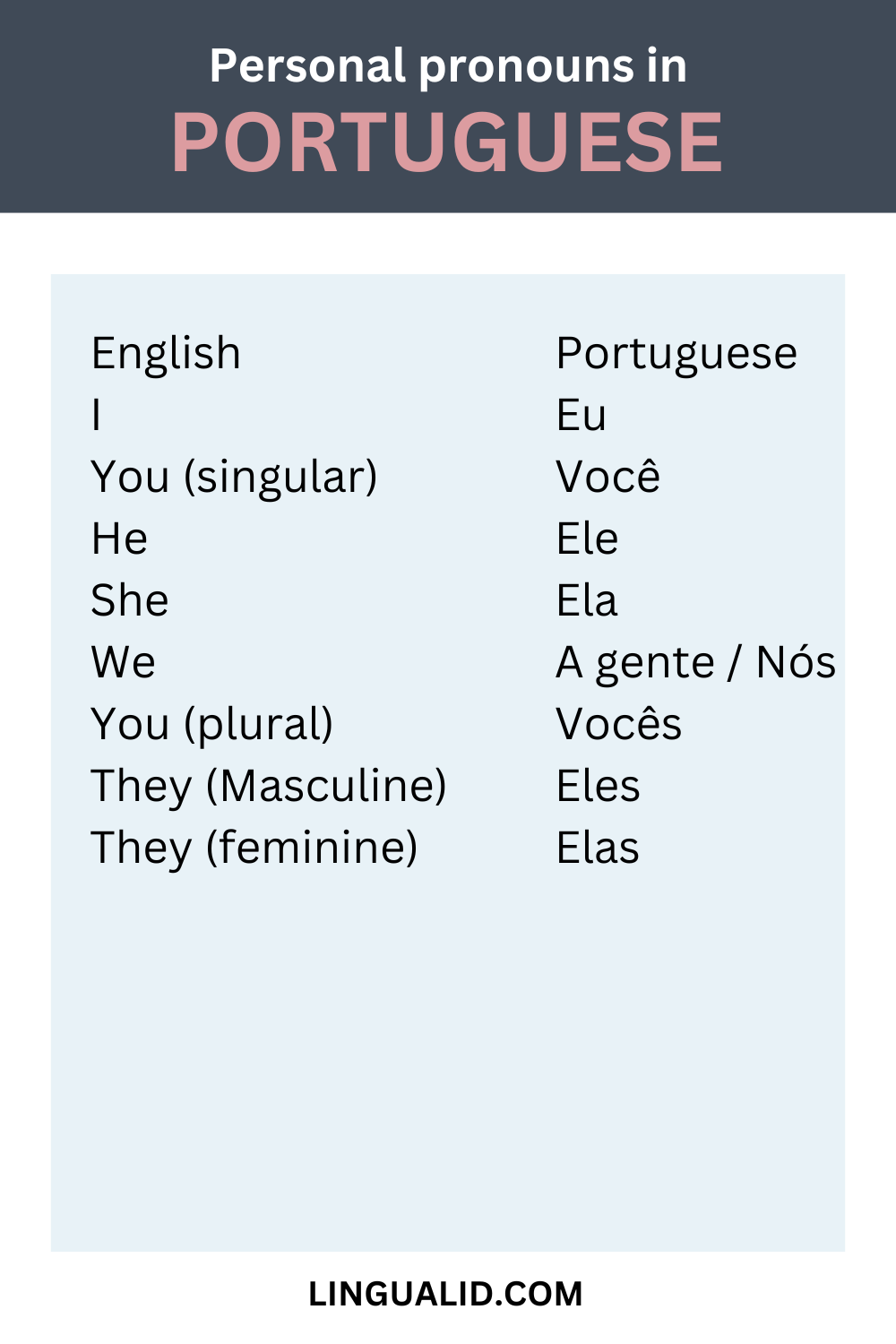Portuguese Personal Pronouns is one of the first basic lessons every Portuguese learner must learn to talk about or describe anything, of course adding to that verbs, nouns, and adjectives to give complete sentences. So in this post, we will talk about personal pronouns in Portuguese and provide some brief explanations.

Personal Pronouns in Portuguese
| English | Portuguese |
| I | Eu |
| You (singular) | Você |
| He | Ele |
| She | Ela |
| We | A gente / Nós |
| You (plural) | Vocês |
| They (Masculine) | Eles |
| They (feminine) | Elas |
Note: you can practice what you’ve learned here, and learn how to pronounce each of the words in our Memrise course here, don’t know how to use the platform or sign up? we’ve got you covered in this easy-to-follow tutorial here.
Tips:
- There are other forms of saying You: TU (singular) and VÓS (plural) but “Você” and “Vocês” are more widely used. Also, their conjugations are slightly different.
- There is no “it“, every Portuguese word has a gender, so it’s either “ele” or “ela“.
- They: If we’re talking about a group of males we use “eles“, for females we say “elas“, and for a group of a mix of genders, we use also “eles“
- We: in daily life in Brazil, “a gente” is more commonly used, and its conjugation is the same as “you singular”, “he” and “she”, in written Portuguese, “Nós” is more used.

Portuguese Personal Pronouns Review
Quiz
Instructions: Answer the following questions in 2-3 sentences.
- What are the Portuguese equivalents for the English pronouns “I,” “you” (singular), and “he”?
- How do you say “we” in Portuguese, and is there a difference in usage between the two options?
- What is important to remember about gender when using Portuguese pronouns?
- How would you say “they” in Portuguese when referring to a group of women? A group of men? A mixed group?
- According to the text, what are the two ways to say “you” (plural) in Portuguese, and which form is more common?
Answer Key
- “I” is Eu, “You” (singular) is Você, and “He” is Ele.
- “We” can be said as A gente or Nós. A gente is more commonly used in everyday conversation in Brazil, while Nós is more common in written Portuguese.
- Every noun in Portuguese has a gender. This is important to remember because it affects pronoun usage. For example, there is no gender-neutral pronoun like “it” in English.
- “They” when referring to a group of women is Elas. For a group of men, it is Eles. For a mixed group, you also use Eles.
- The two ways to say “you” (plural) in Portuguese are Vocês and Vós. Vocês is the more commonly used form.
Happy learning!
Oualid Cheddadi is the founder of Lingualid, a platform that inspires independent language learners worldwide, regardless of the language they are learning. The name “Lingualid” is derived from the Portuguese word for “language,” “língua,” and the last three letters of Oualid’s name, “Lid.”



